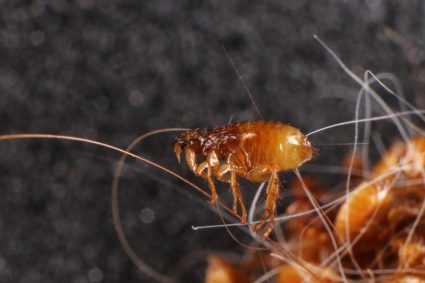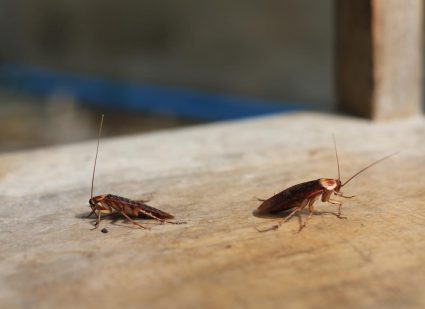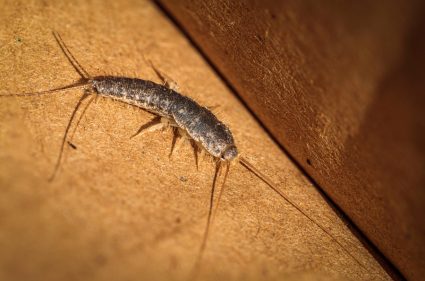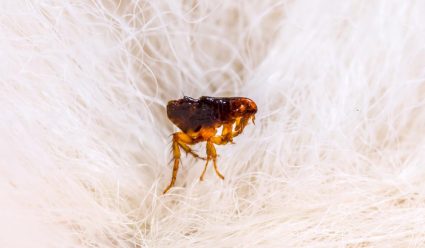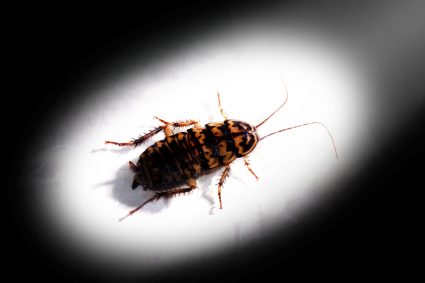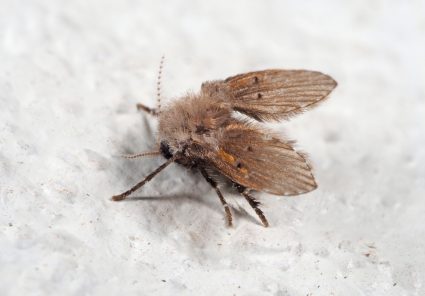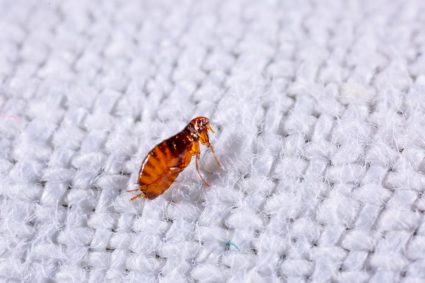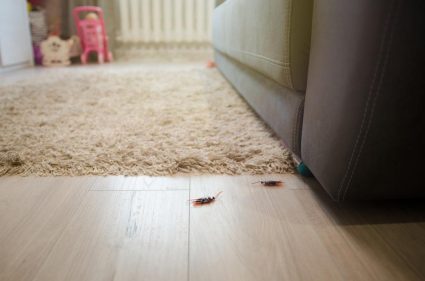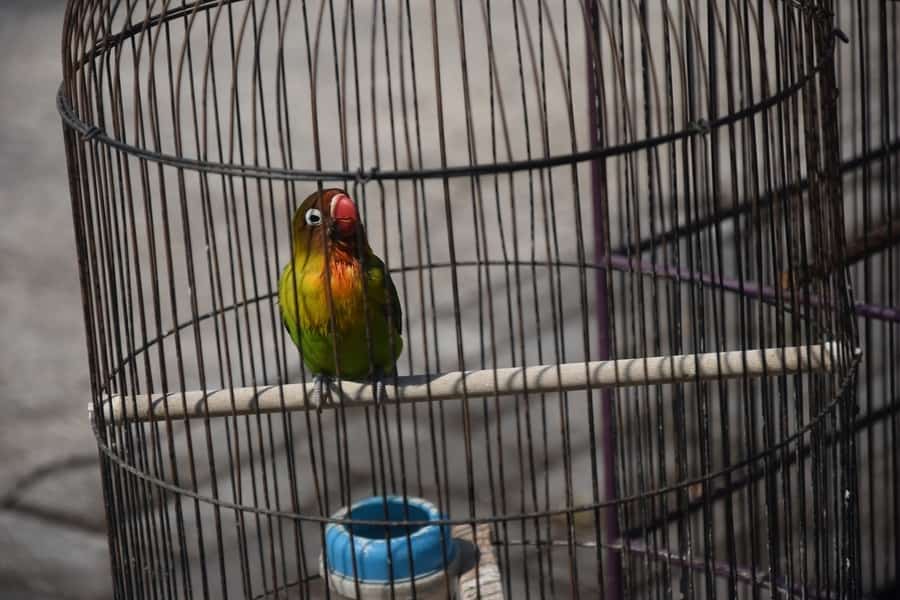
Are those nasty rodents after your birds again? Do they constantly hover by the bird cages, seeking a way in?
Rats are attracted to fragile animals like birds. As potential prey, these rodents will do anything to get into the bird cages.
Bird cages are easy targets for these rodents because they contain different food sources. So, if you own a couple of pet birds, rats are some predators you have to keep at bay.
But how do you keep these rodents away? Let’s take a look!
Rats are dangerous creatures to birds. Keeping these rodents away from your bird cage is an essential step towards eliminating them from your house completely.
Below are a few ways you can deter these predators:
- Only use bird cages with a narrow mesh.
- Always keep the floor around your birdcage clean.
- Make use of repellants and rat traps.
- Seal up all holes.
These and more methods are explained in detail in the article.
In the next few minutes, we will walk you through 10 DIY-friendly ways to deter rats from your bird cages. You will learn what circumstances to use each and a step-by-step guide to applying them.
10 Ways To Keep Rats Away From Bird Cages
Rats invading your bird cage is terrible for many reasons. For one, rats can kill and feast on your birds and their feed.
Birds are often too small and vulnerable to fight back. If, by any chance, the infiltrated rats don’t succeed in killing off your birds, they can spread diseases to them.
It is essential to keep rats out of your bird cages by any means available. Here are ten tips we believe will help:
1. Close Up All Holes
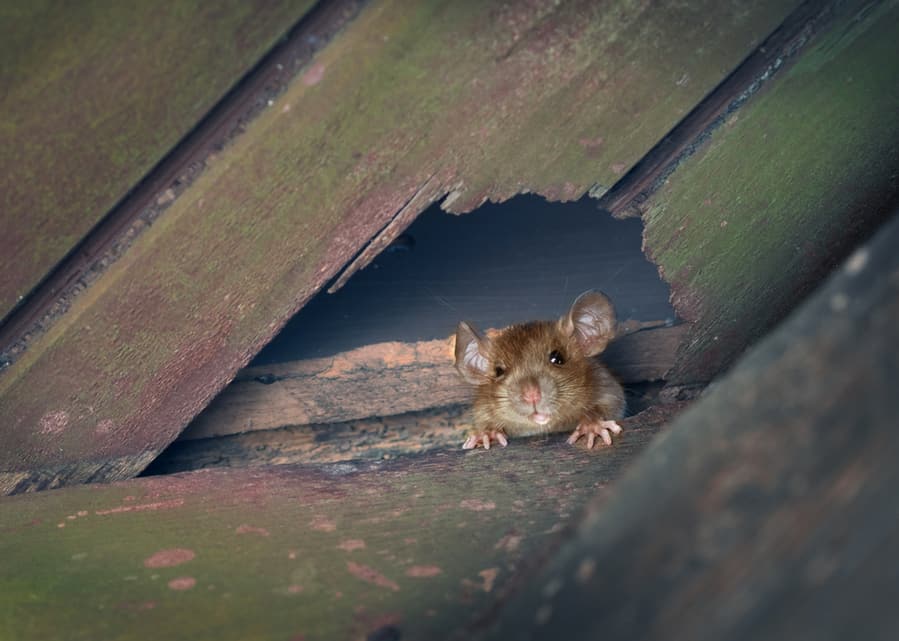
Rats are flexible creatures and can pass through almost any hole. You must ensure no gaps in your bird cages that rats can squeeze through.
Carefully inspect your bird cage for open gaps and close them immediately if you notice any.
It is advisable to use thick metal strips to seal bird cage holes. These strips should be at least half an inch thick.
Thin metal strips will have almost no effect on rats because these rodents can easily gnaw through anything.
After sealing the holes in your bird cage, inspect the surrounding area for other weak spots.
These can be open gaps in your walls that allow them to scurry back and forth. Rats can take advantage of these weak spots to dig a hole and create a tunnel to your bird cage.
Plaster these holes shut to eliminate the possibility of rats burrowing through them.
2. Elevate Your Bird Cage
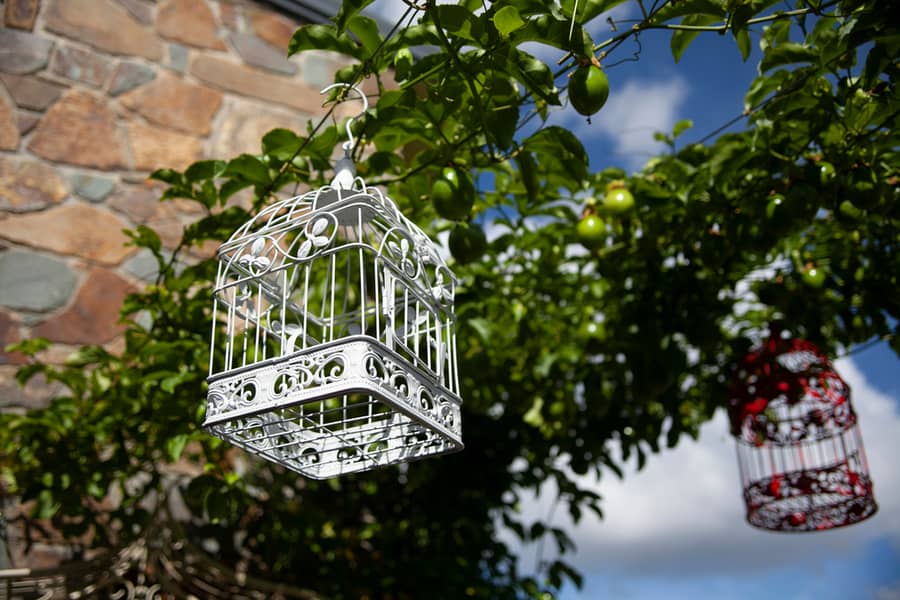
Rats typically crawl while searching for food; they also move around to cause havoc. It is only in exceptional circumstances that you may find them climbing elevated surfaces.
If your bird cage rests on the floor, it allows rodents to get in easily. These rodents can gnaw through the bottom part of your bird cage and harass your birds.
When rats chew a hole through your bird cage, they will keep coming back. To prevent this, you can place your bird cage some feet above the ground.
You can hang the bird cage from the roof or a tree branch to reduce exposure to rats. Although rats are good climbers, they can’t jump high distances.
3. Clean the Floor Around Your Bird Cages

Food is one of the biggest attractions for rats and other rodents.
Rats can smell food from miles away and eat anything from cooked to raw grains.
Like rats, birds are messy eaters and enjoy strewing seeds as they eat. So, the smell of grains in your bird feeder can easily attract rats.
As you know, these rats can attack and hurt your birds to eat them. To prevent these stray grains from luring the wrong animals, form a habit of cleaning up after your birds feed.
To protect your birds, clean their cages and the floor around them frequently.
Alternatively, you can place a cage underneath the bird cage to catch stray seeds from birds’ beaks.
4. Buy Bird Cages With a Narrow Mesh
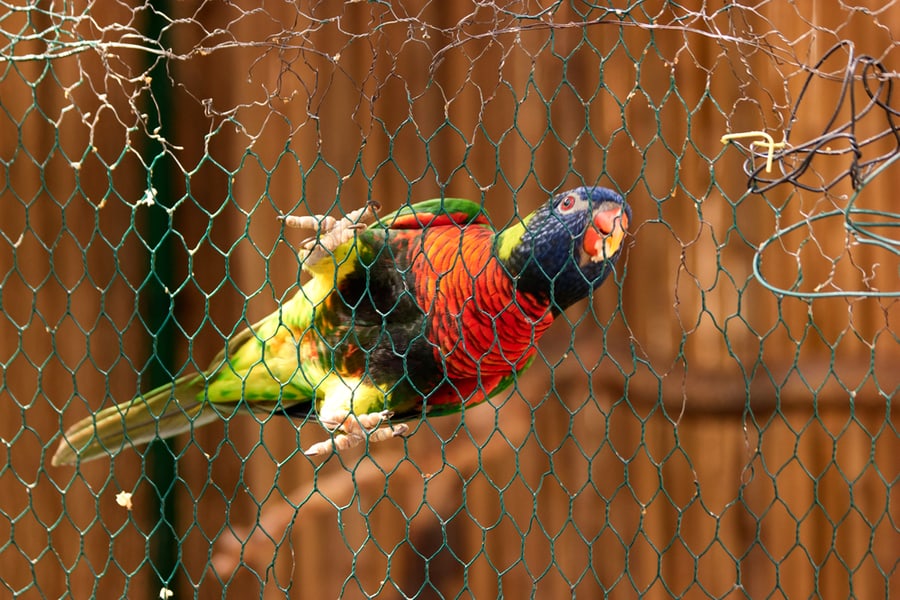
It is essential to consider the small details when shopping for a bird cage, including mesh sizes.
The thing is, rats have two sharp front teeth that they use to chew things. They adopt constant chewing as a measure to prevent their teeth from overgrowing.
With these, they can chew through almost anything, including soft bird cage mesh, to get to the birds.
However, buying a bird cage with thick mesh makes it near impossible for rats to chew through.
5. Use Rat Repellants

Rats have sensitive olfactory receptors that help them spot food from a long distance. In the same vein, they hate the smell of certain things and will stay far away from them.
These smells that rats dislike are what we call rat repellants, which can be natural or artificial. Some common artificial rat repellants include mothballs and dryer sheets.
You can place these near or outside your bird cage. For mothballs, keep them outside the bird cage because of their poisonous content.
When rats eat mothballs, they can die of suffocation. Extreme caution is required, especially if you have children or other pets in the house.
If you consider the risk of using artificial repellents too severe for you to manage, you can use natural repellents instead.
To deter rats from your bird cage naturally, use rat-repelling agents like plants. Some of these natural repellants you can try out include garlic, pepper, eucalyptus, onion, oregano, and lemon.
You can plant these in your garden and hang your bird cage over them. This will keep your birds safe from rats and protect your yard from other rodent infestations.
6. Separate Your Pet Rat From Your Bird Cage
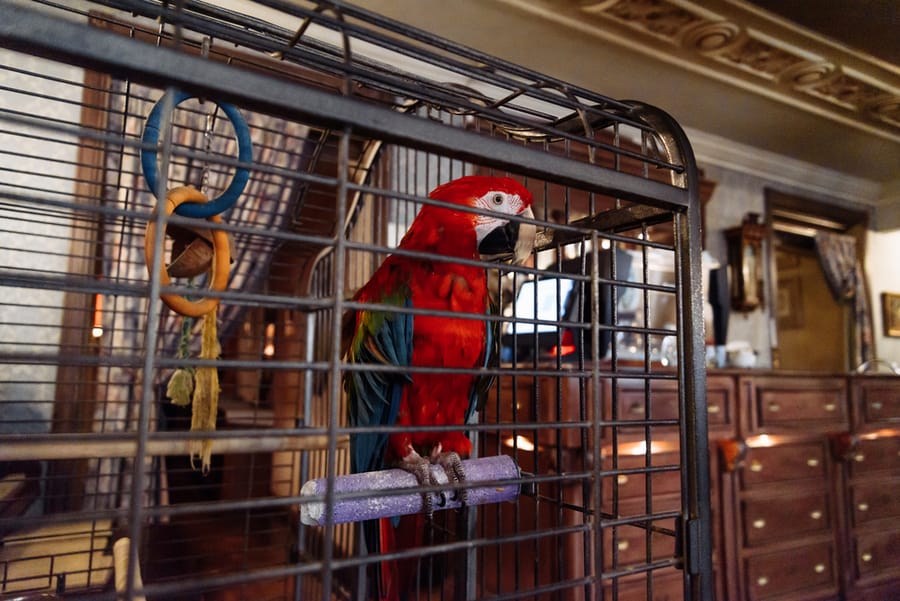
If you have a pet rat, keeping it far from your bird’s cage is another way to protect your birds.
Keeping them in the same place will only make your rat want to get closer.
From its position, the pet rat near your bird cage will see all the food your bird gets and may decide to move closer to have some.
Moving your birds to a different location reduces the chances of rat infiltration. Your pet rat will take a while to figure out where you moved your birds.
In the long run, this will reduce the chance of an attack on your bird.
7. Switch Up Your Bird’s Diet
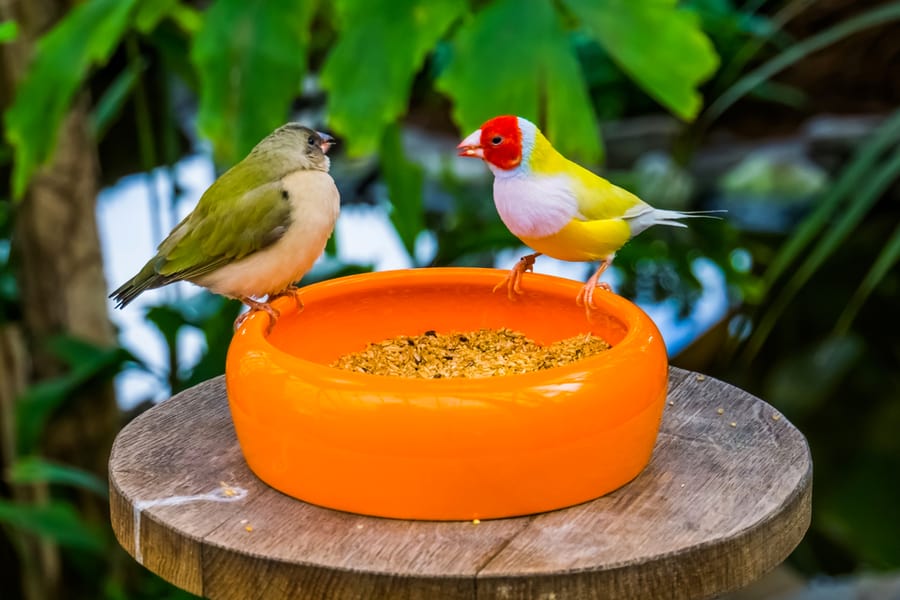
If, after trying everything, you are still faced with a rat infestation, another thing you can try is switching up your bird feed. Instead of regular bird feed, give your birds something you know rats hate to eat.
This will decrease the chances of rats hanging around your bird cage, waiting for crumbs to fall off.
Spice is something you may consider experimenting with. While birds are not sensitive to peppers, rats and other mammals do not like the taste.
You can buy hot pepper seed mixes and oils to combine with your bird food. This will make the food unappealing to rats and irritate them if they attempt to nibble on it.
8. Set Rat Traps
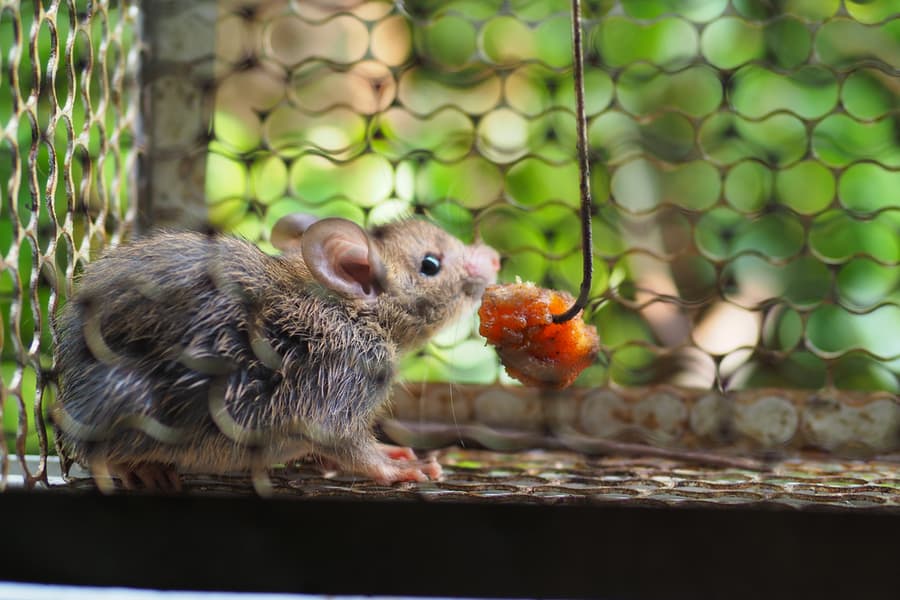
Another effective way to eliminate rats if they won’t stop harassing your birds is to pull out rat traps.
There are three main rat traps – live traps, glue boards, and snap traps. The glue boards and snap traps are the most effective, killing rats in minutes.
However, many consider these methods inhumane.
For example, when a rat gets stuck to a glue board, it starves and suffocates to death. Sometimes, they chew off their limbs to try to break free, which is a horrible sight to behold.
You sure don’t want dead rats littering your birdcage when you wake up. A live trap remains the best and safest way to eliminate notorious rats.
It allows you to capture the rat alive and then take it out of your house, where you can release it. Depending on your choice, place your preferred rat trap near your bird cage and check it at intervals.
9. Store Bird Feed Properly
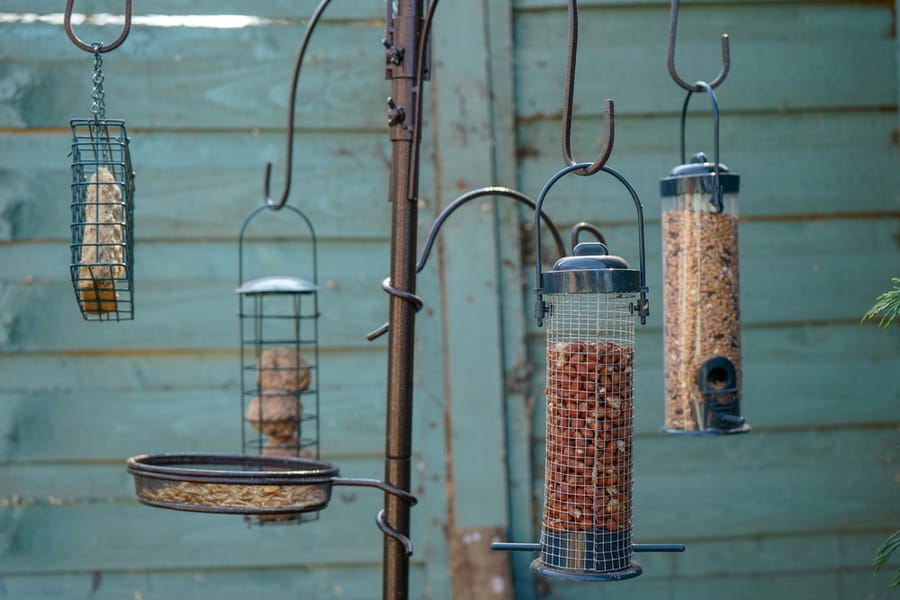
If you are giving all your attention to your bird cage and neglecting the feed, rats will still hover.
As stated before, rats have a strong sense of smell and will locate bird food wherever it is.
But they won’t want to come around if they don’t smell any food. So, properly storing bird food is an important long-term strategy to keep rats off your bird cage.
Instead of storing bird food in its packaging, move it to another container.
You can use plastic containers with tight coverings so the aroma does not escape. Then, move the new feed container far from the birdcage. You could take it inside your house.
10. Invite Pest Control Experts
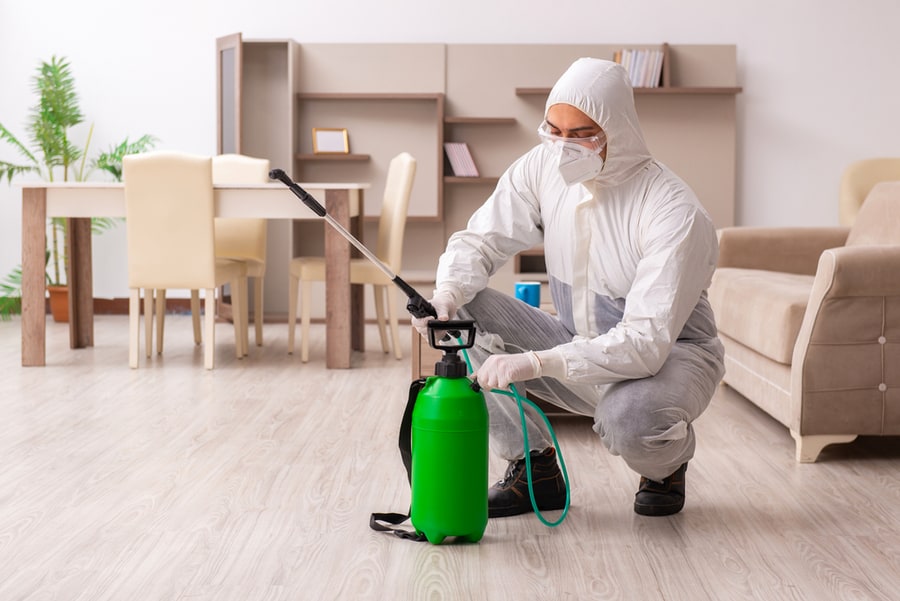
If the problem persists after following the tips provided above, it is time to call in the professionals.
This implies that your house may have a severe rat infestation crisis that you are not equipped to manage.
Pest control professionals are better qualified to handle that. They know the suitable methods to deal with your rat infestation problem permanently.
Conclusion
Keeping rats away from your bird cage is an essential step towards eliminating them from your home entirely. Rats can damage your favorite birds and even spread diseases.
It is vital to rat-proof your cage and make them less appealing to rodents.
Following the guidelines above will help you manage this tricky situation.
Frequently Asked Questions
Do Rats Make Birds Sick?
Rats are dangerous creatures to birds because they can spread diseases to them.
Wild rats harbor infections detrimental to birds that they pass off in their urine and poop.
If your bird comes in contact with these excretions, it can fall sick from the harmful microorganisms.
The ill bird can then pass on the illness to other birds in the cage, which is a lot of trouble for you.
Can Poisons Keep Rats Away From Bird Cages?
It is not advisable to kill rats with poison. The reason is that commercial rat poisons are harmful to pets.
However, you can make safe rat poison from home with ingredients like baking soda. Baking soda causes rats to accumulate gas and die after a while.
Mix baking soda with foods rats like, such as peanut butter. This should handle the problem in about a week.

